Home>Garden Essentials>Garden Plants>How To Use Thyme For Mucus
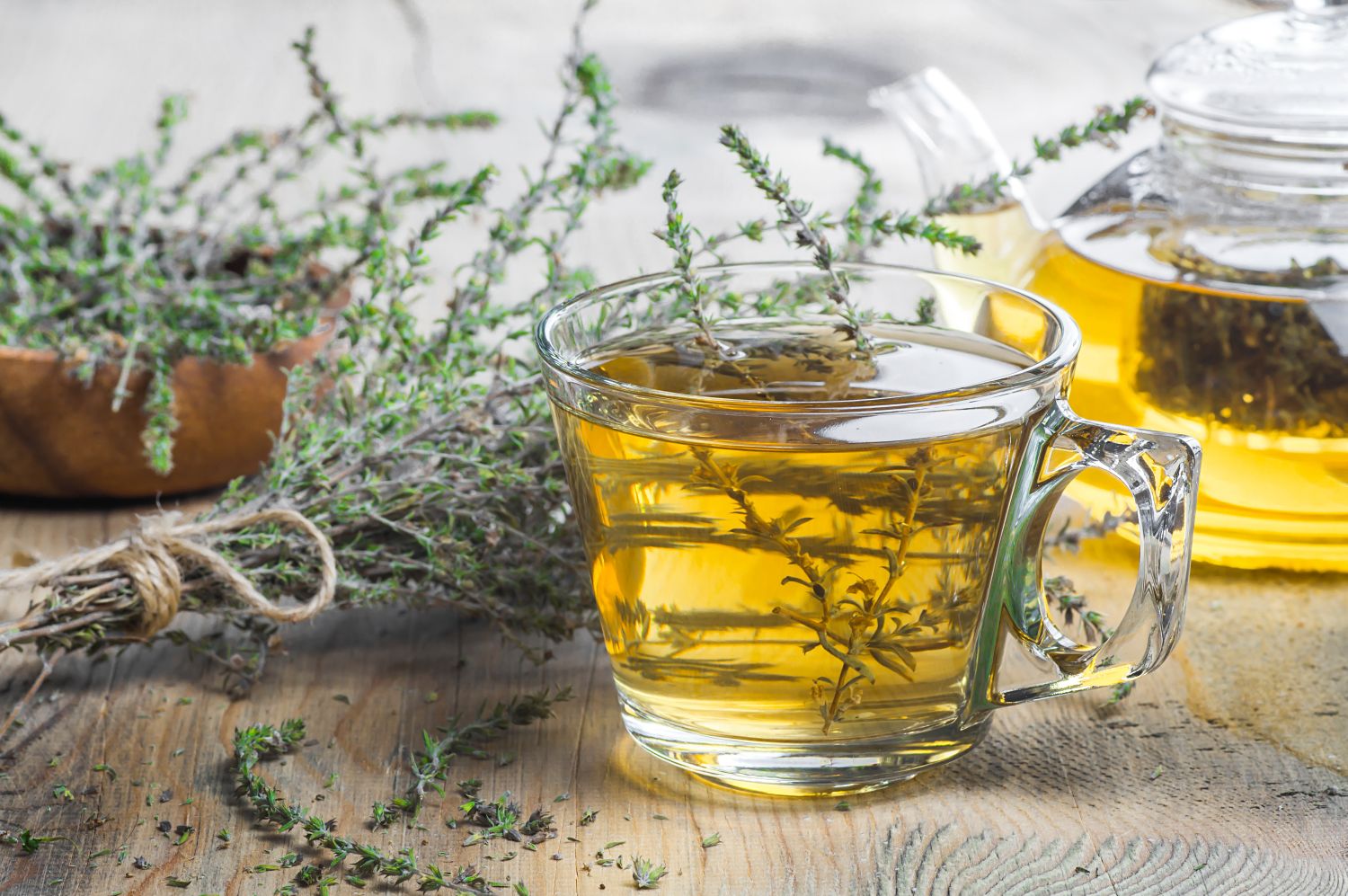

Garden Plants
How To Use Thyme For Mucus
Modified: October 18, 2024
Discover effective ways to use thyme, a powerful plant, for reducing mucus and promoting respiratory health. Harness the natural benefits of thyme today!
(Many of the links in this article redirect to a specific reviewed product. Your purchase of these products through affiliate links helps to generate commission for Storables.com, at no extra cost. Learn more)
Introduction
Dealing with excessive mucus can be quite uncomfortable. Whether it’s due to seasonal allergies, a cold, or sinus congestion, the build-up of mucus can make it difficult to breathe, lead to coughing, and even affect your sense of taste and smell. Fortunately, nature provides us with various remedies to help alleviate these symptoms, and one such remedy is thyme.
Thyme, a perennial herb native to the Mediterranean region, has been used for centuries for its medicinal properties. It is known for its antibacterial, antifungal, and antiviral properties, making it an excellent choice for respiratory issues, including mucus. This article will explore the benefits of thyme for mucus relief and provide you with some effective ways to incorporate thyme into your routine.
Before we dive into the specific uses of thyme for mucus, it’s essential to understand how thyme works. Thyme contains compounds called thymol and carvacrol, which have expectorant properties. These compounds help to loosen and expel mucus from the respiratory tract, making it easier to breathe. Thyme also has anti-inflammatory properties that can reduce irritation in the airways caused by excessive mucus production.
Now, let’s explore the benefits of using thyme for mucus relief.
Key Takeaways:
- Thyme, with its expectorant, antimicrobial, and anti-inflammatory properties, offers a natural and effective solution for mucus relief, promoting respiratory health and soothing symptoms.
- From thyme tea to steam inhalation, thyme offers versatile and enjoyable methods for mucus relief. However, it’s crucial to consider precautions and consult a healthcare professional when incorporating thyme into your routine.
Read more: What Is Thyme Used For
Benefits of Thyme for Mucus
Thyme offers several benefits when it comes to managing and reducing mucus in the respiratory system. Here are some of its key advantages:
- Expectorant Properties: Thyme contains compounds that help to break down mucus and facilitate its expulsion from the respiratory tract. This can provide relief from congestion and make breathing easier.
- Antibacterial and Antiviral Activity: Thyme has natural antimicrobial properties that can help combat the bacteria or viruses causing respiratory infections. By addressing the underlying cause, it can help reduce mucus production.
- Anti-Inflammatory Effects: Excessive mucus production often leads to inflammation in the airways, causing discomfort and breathing difficulties. Thyme’s anti-inflammatory properties can help soothe and reduce inflammation, promoting respiratory health.
- Antioxidant Content: Thyme is rich in antioxidants, which help reduce oxidative stress in the body. This can support overall respiratory health and contribute to mucus reduction.
- Immune-boosting Properties: Thyme contains essential vitamins and minerals that can help strengthen the immune system, allowing the body to better fight off respiratory infections and reduce mucus build-up.
With its combination of expectorant, antimicrobial, anti-inflammatory, and immune-boosting properties, thyme is a natural remedy that can provide relief from mucus-related symptoms.
Now that we understand the benefits of thyme, let’s explore the different ways you can use it to relieve mucus.
Preparation of Thyme for Mucus Relief
Thyme can be used in various forms to help relieve mucus and promote respiratory health. Before using thyme, it’s important to ensure that you have high-quality, organic thyme leaves or oil. Here are some of the ways to prepare thyme for mucus relief:
1. Thyme Tea:
Thyme tea is a popular method for using thyme to alleviate mucus-related symptoms. To prepare thyme tea, follow these steps:
- Boil a cup of water.
- Add 1-2 teaspoons of dried thyme leaves or a few fresh thyme sprigs to the boiling water.
- Let it steep for 5-10 minutes.
- Strain the tea.
- You can add honey or lemon juice for added flavor, as well as to soothe the throat.
- Drink the tea warm, up to 2-3 times a day.
2. Thyme Steam Inhalation:
Inhaling steam infused with thyme can help to loosen and expel mucus from the respiratory system. Follow these steps for a thyme steam inhalation:
- Boil a pot of water.
- Add a handful of fresh thyme sprigs or a few drops of thyme essential oil to the boiling water.
- Remove the pot from heat and place it on a heat-resistant surface.
- Lean over the pot and cover your head with a towel to trap the steam.
- Inhale the steam for 5-10 minutes, being careful not to get too close to avoid burns.
- Repeat this process 1-2 times a day to help loosen mucus.
Read more: How To Use Thyme For Acne
3. Thyme Honey Mixture:
Mixing thyme with honey creates a soothing and effective remedy for mucus relief. Here’s how to make a thyme honey mixture:
- Add fresh thyme leaves or a few drops of thyme essential oil to a jar of raw honey.
- Stir well to ensure the thyme is fully incorporated into the honey.
- Let it sit for a few days to allow the thyme flavors to infuse into the honey.
- Take 1-2 teaspoons of the thyme honey mixture as needed to relieve mucus symptoms.
4. Thyme Oil Rub:
Applying thyme essential oil to the chest can help relieve congestion and promote mucus expectoration. Follow these steps to make a thyme oil rub:
- Mix a few drops of thyme essential oil with a carrier oil such as coconut oil or olive oil.
- Gently massage the mixture onto the chest, avoiding sensitive areas and broken skin.
- Allow the oil to absorb into the skin.
- Repeat this process several times a day or as needed for mucus relief.
Remember to perform a patch test before using thyme oil topically to ensure you don’t have any adverse reactions to it.
Now that you’re familiar with different ways to prepare thyme for mucus relief, let’s move on to a thyme tea recipe for mucus.
Thyme Tea Recipe for Mucus
Thyme tea is a simple and effective way to use thyme for mucus relief. It helps to soothe the throat, reduce congestion, and promote expectoration. Here’s a basic recipe to make thyme tea:
Ingredients:
- 1-2 teaspoons of dried thyme leaves or a few fresh thyme sprigs
- 1 cup of water
- Honey or lemon juice (optional)
Read more: How To Use Fresh Thyme
Instructions:
- Boil a cup of water in a pot.
- Add 1-2 teaspoons of dried thyme leaves or a few fresh thyme sprigs to the boiling water.
- Reduce the heat, cover the pot, and let it simmer for 5-10 minutes.
- Remove the pot from heat and strain the tea to remove the thyme leaves or sprigs.
- If desired, stir in honey or lemon juice to enhance the flavor and soothe the throat.
- Allow the tea to cool slightly, and then drink it warm.
- You can enjoy this thyme tea up to 2-3 times a day for mucus relief.
Thyme tea can be a comforting and natural way to alleviate mucus-related symptoms. It’s important to note that while thyme tea is generally safe, it may interact with certain medications or have contraindications for certain health conditions. It’s advisable to consult a healthcare professional if you have any concerns or questions.
Now that you know how to prepare thyme tea, let’s explore another method of using thyme for mucus relief: thyme steam inhalation.
Thyme Steam Inhalation for Mucus
Thyme steam inhalation is a wonderful and natural method for relieving mucus congestion. Inhaling the steam helps to loosen and expel mucus from the respiratory tract, providing instant relief. Here’s how you can perform thyme steam inhalation:
Ingredients:
- A handful of fresh thyme sprigs or a few drops of thyme essential oil
- A pot of boiling water
- A towel
Read more: How To Use Fresh Thyme
Instructions:
- Fill a pot with water and bring it to a boil.
- Add a handful of fresh thyme sprigs or a few drops of thyme essential oil to the boiling water.
- Remove the pot from heat and place it on a heat-resistant surface.
- While the water is still steaming, lean over the pot.
- Carefully drape a towel over your head to create a steam tent, trapping the vapors.
- Inhale deeply, slowly breathing in the steam for about 5-10 minutes.
- Be cautious not to get too close to the steam to avoid any risk of burns.
- Repeat the process 1-2 times a day, as needed, to help loosen mucus.
The warm steam infused with thyme helps to soothe the airways, reduce inflammation, and promote expectoration of mucus. It’s a simple and effective way to find relief from congestion and promote respiratory health.
It’s important to note that steam inhalation may not be suitable for everyone, particularly those with certain respiratory conditions like asthma or chronic obstructive pulmonary disease (COPD). If you are unsure if steam inhalation is safe for you, consult with your healthcare provider before attempting this method.
Now that you’re familiar with thyme steam inhalation, let’s move on to another preparation method: thyme honey mixture for mucus relief.
Read more: How To Use Thyme For Cough
Thyme Honey Mixture for Mucus
A soothing and delicious way to utilize the benefits of thyme for mucus relief is by creating a thyme honey mixture. Combining the antibacterial properties of thyme with the soothing effects of raw honey can help alleviate mucus-related symptoms. Follow these steps to make a thyme honey mixture:
Ingredients:
- 1 cup of organic raw honey
- A handful of fresh thyme leaves or a few drops of thyme essential oil
Read more: How To Use Fresh Thyme
Instructions:
- Add fresh thyme leaves or a few drops of thyme essential oil to a jar of organic raw honey.
- Stir well to ensure the thyme is fully incorporated into the honey.
- Close the jar tightly and let it sit for a few days.
- This allows the thyme to infuse into the honey, enhancing its medicinal properties.
- After a few days, the thyme honey mixture is ready to use.
To enjoy the benefits of the thyme honey mixture, take 1-2 teaspoons as needed for mucus relief. You can consume it directly, or you can add it to warm water or tea for an added soothing effect.
Thyme honey mixture not only helps to alleviate mucus, but it can also provide relief for a sore throat. The combination of thyme’s antimicrobial properties and the soothing nature of honey creates a potent blend to promote respiratory health.
Remember, if you have any allergies or sensitivities to honey or thyme, it’s advisable to consult a healthcare professional before trying this remedy.
Now that you’re familiar with the thyme honey mixture, let’s explore another method: thyme oil rub.
Thyme Oil Rub for Mucus
Another effective way to use thyme for mucus relief is through a thyme oil rub. Applying thyme essential oil topically to the chest can help alleviate congestion, promote expectoration, and provide soothing relief. Here’s how you can make and use a thyme oil rub:
Ingredients:
- 5-10 drops of thyme essential oil
- A carrier oil (such as coconut oil, olive oil, or sweet almond oil)
Read more: How To Use Fresh Thyme
Instructions:
- In a small, clean container, mix 5-10 drops of thyme essential oil with a carrier oil of your choice.
- Start with a smaller number of drops and adjust according to your preference and skin sensitivity.
- Stir the oils well to ensure they are blended properly.
- Gently massage the thyme oil mixture onto your chest, avoiding sensitive areas and broken skin.
- Allow the oil to absorb into your skin. You can also cover your chest with a warm towel to enhance the effectiveness of the oil.
- You can repeat this process several times a day or as needed for mucus relief.
When applied to the chest, the thyme oil helps to loosen mucus, reduce congestion, and provide a comforting sensation. The carrier oil helps dilute the essential oil and allows for easier application.
It’s important to perform a patch test before using thyme essential oil topically to ensure you don’t have any adverse reactions. If you experience any irritation or discomfort, discontinue use and seek medical advice.
Now that you know how to make and use a thyme oil rub, let’s move on to some precautions when using thyme for mucus relief.
Precautions When Using Thyme for Mucus Relief
While thyme is generally safe for most people, there are a few precautions to keep in mind when using it for mucus relief. Consider the following precautions before incorporating thyme into your routine:
Allergies:
Some individuals may have allergies or sensitivities to thyme. If you experience any allergic reactions such as itching, swelling, or difficulty breathing, discontinue use and seek medical attention immediately.
Read more: How To Use Thyme For Hair Growth
Pregnancy and Breastfeeding:
If you are pregnant or breastfeeding, it’s important to consult your healthcare provider before using thyme as a remedy. While thyme is generally safe in culinary amounts, it’s best to err on the side of caution and seek professional advice.
Medication Interactions:
Thyme may interact with certain medications, such as blood thinners, anticoagulants, and sedatives. If you are taking any medications, it’s recommended to consult with your healthcare provider before using thyme for mucus relief to ensure there are no potential interactions.
Burning or Irritation:
When using thyme essential oil topically or for steam inhalation, be cautious not to get too close to the steam or use an excessive amount of oil, as it may cause burning or irritation on the skin or mucous membranes. Always follow the recommended guidelines and dilute essential oils properly with carrier oils.
Quality and Source:
Ensure that you are using high-quality thyme leaves, oil, or products from a reputable source. Organic and pure forms of thyme are recommended to minimize exposure to pesticides or contaminants.
As with any natural remedy, it’s always a good idea to consult with a healthcare professional if you have any underlying health conditions or concerns before incorporating thyme into your mucus relief routine.
Now that you’re aware of the precautions, let’s wrap up the article.
Read more: What Is Thyme Oil Used For
Conclusion
Thyme is a remarkable herb that offers numerous benefits for mucus relief and respiratory health. Its expectorant, antimicrobial, anti-inflammatory, and immune-boosting properties make it a valuable natural remedy. Whether you choose to use thyme in the form of tea, steam inhalation, thyme honey mixture, or a thyme oil rub, you can experience the soothing effects and enjoy relief from mucus-related symptoms.
By incorporating thyme into your mucus relief routine, you can help alleviate congestion, loosen mucus, reduce inflammation, and promote respiratory health.
However, it’s important to keep in mind the precautions, such as potential allergies, medication interactions, and ensuring you use high-quality thyme from a reputable source. It’s always wise to consult with a healthcare professional before beginning any new treatment, especially if you have underlying health conditions or are pregnant or breastfeeding.
Remember to listen to your body and adjust the use of thyme according to your individual needs. If you experience any adverse reactions or discomfort, discontinue use and seek medical advice.
Incorporating thyme into your mucus relief routine can be an enjoyable and effective way to find relief and support respiratory health. However, if your symptoms persist or worsen, it’s important to seek medical attention, as there may be underlying issues that require further evaluation and treatment.
Embrace the power of thyme in your journey towards mucus relief. Enjoy its aromatic scent, soothing properties, and the natural relief it provides. Breathe freely and comfortably with the help of this remarkable herb.
Remember, nature provides us with an abundance of remedies, and thyme is surely a gift when it comes to mucus relief and respiratory health.
Frequently Asked Questions about How To Use Thyme For Mucus
Was this page helpful?
At Storables.com, we guarantee accurate and reliable information. Our content, validated by Expert Board Contributors, is crafted following stringent Editorial Policies. We're committed to providing you with well-researched, expert-backed insights for all your informational needs.
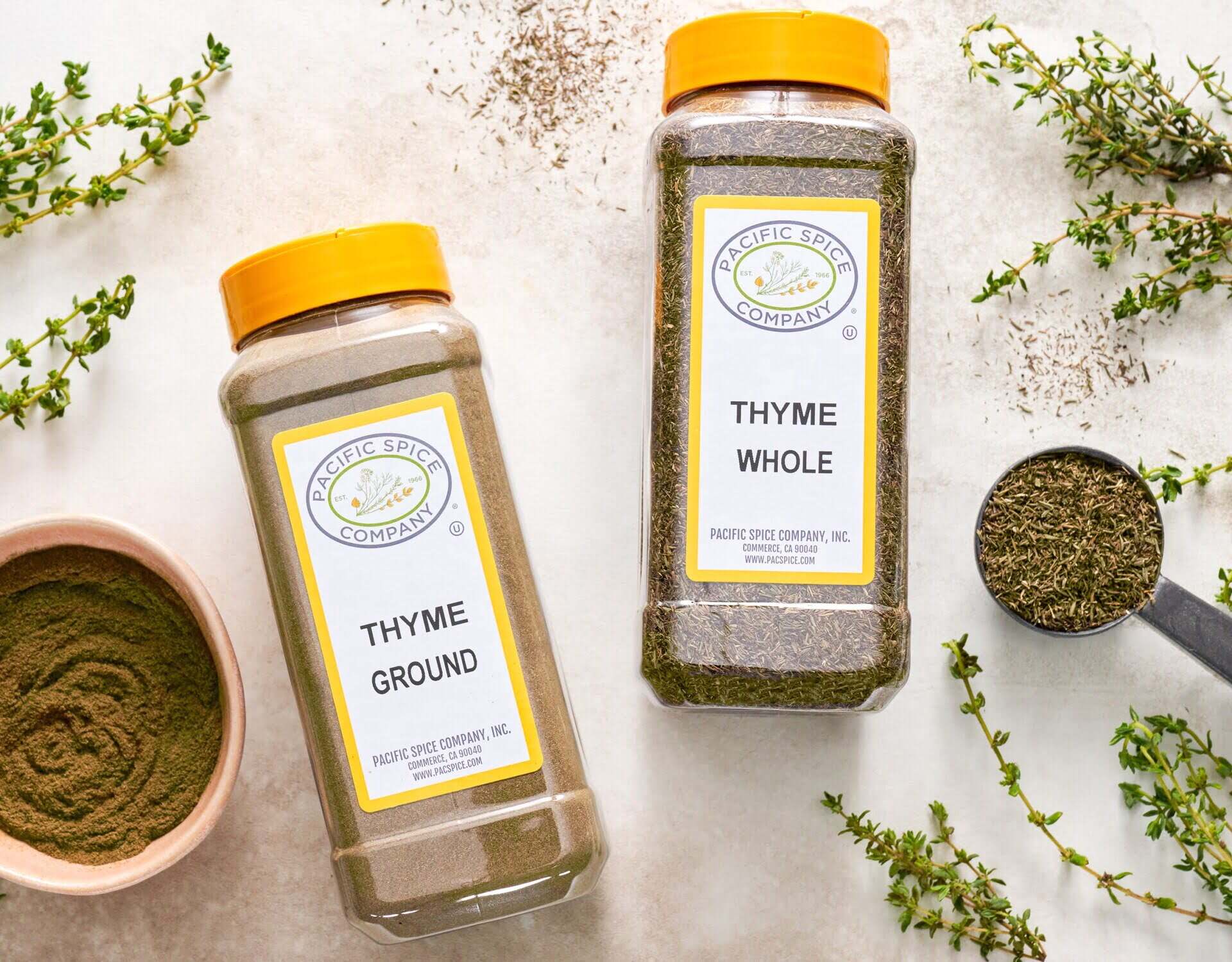
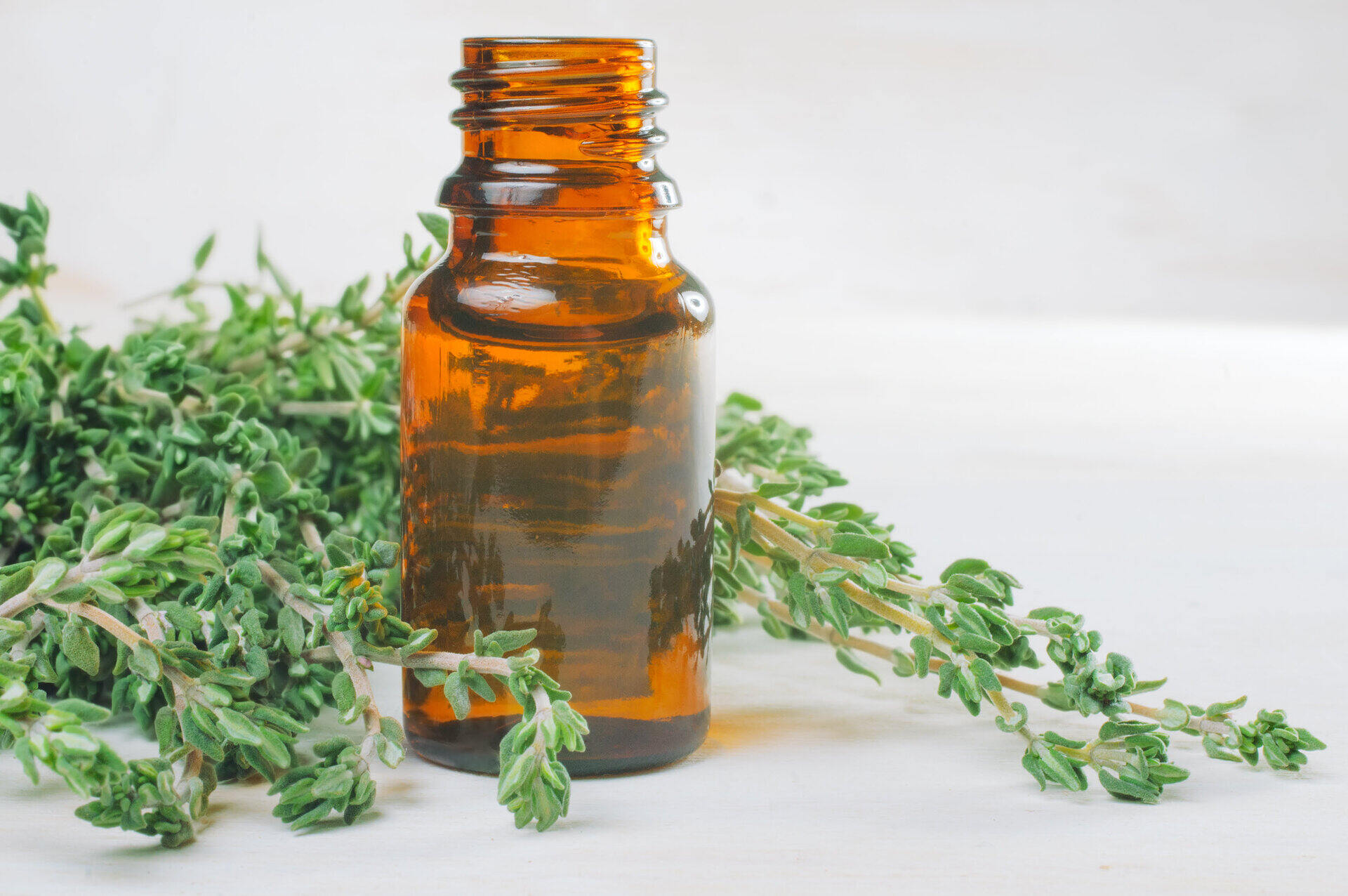
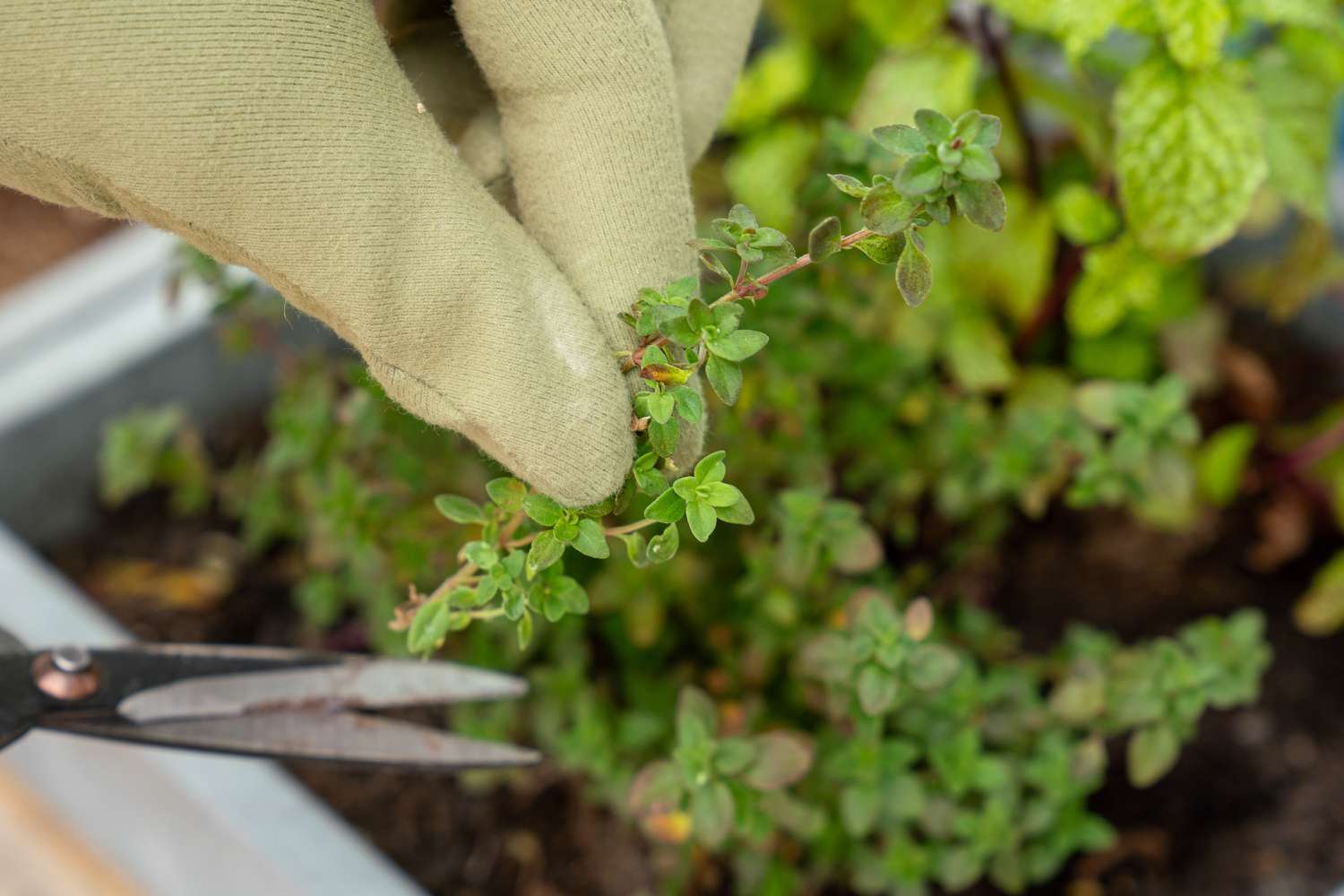
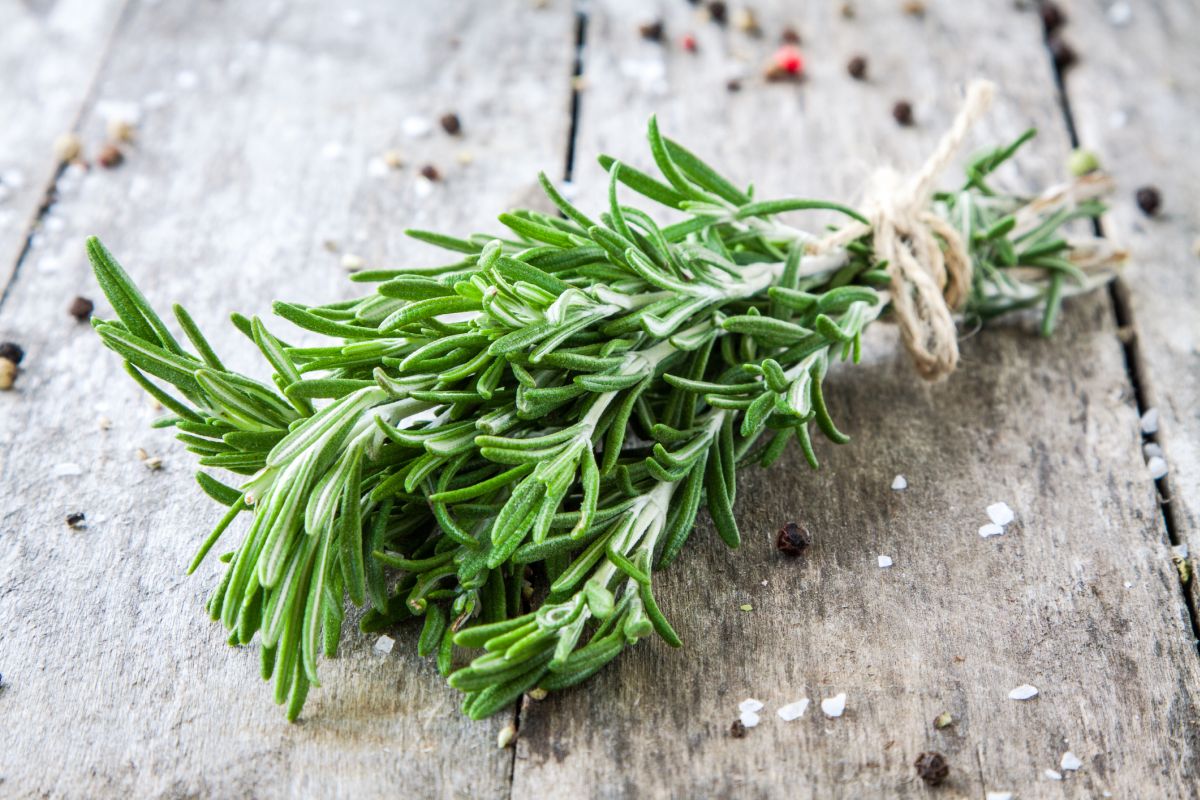

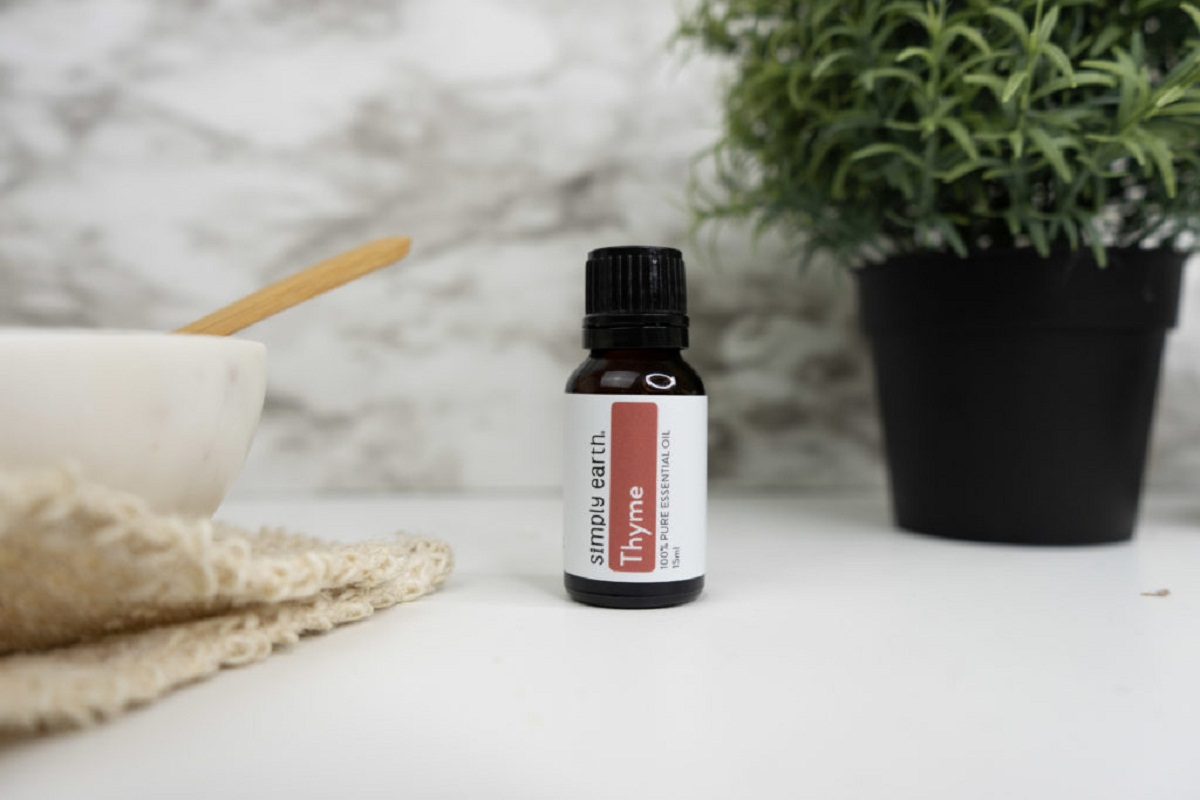

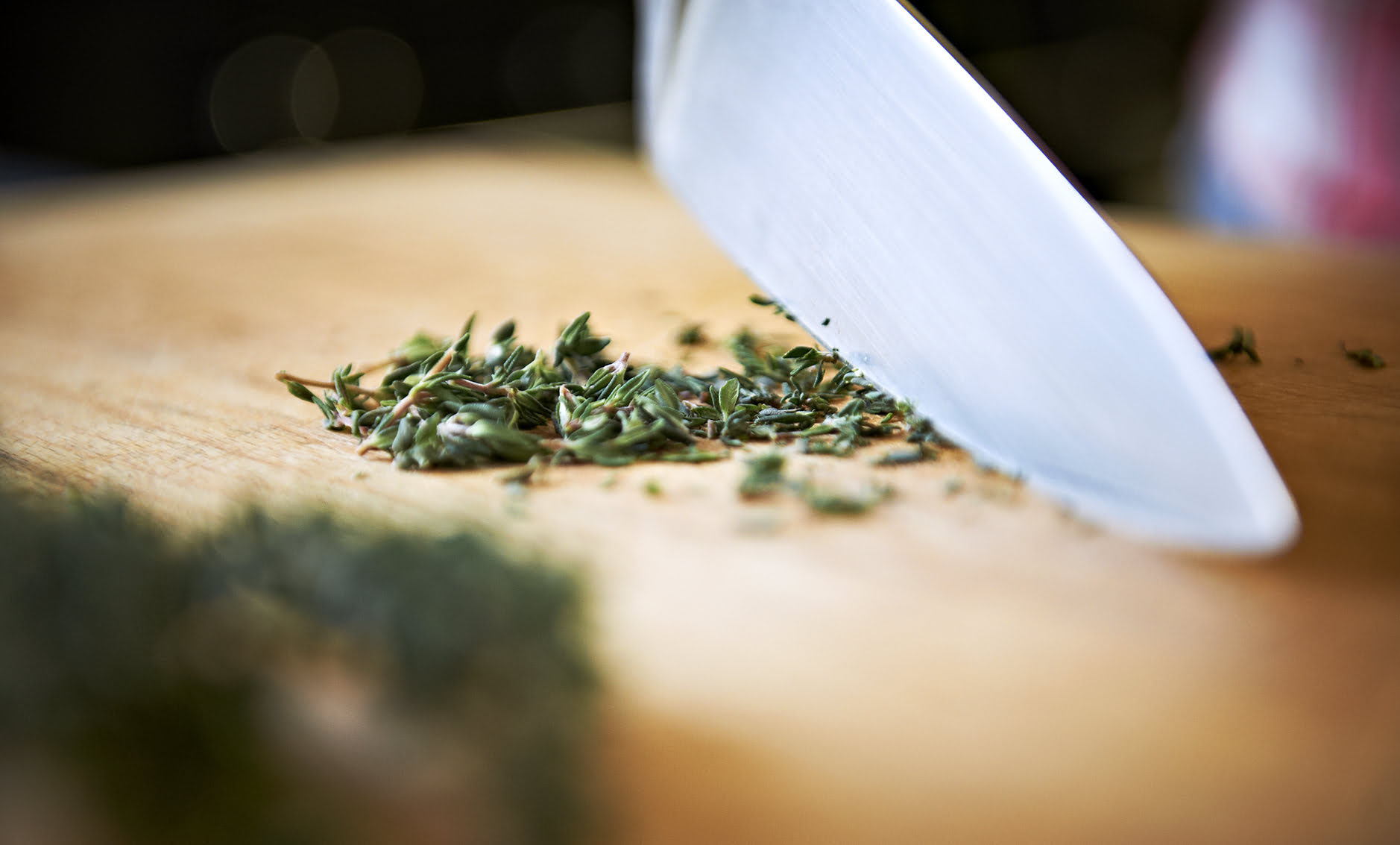
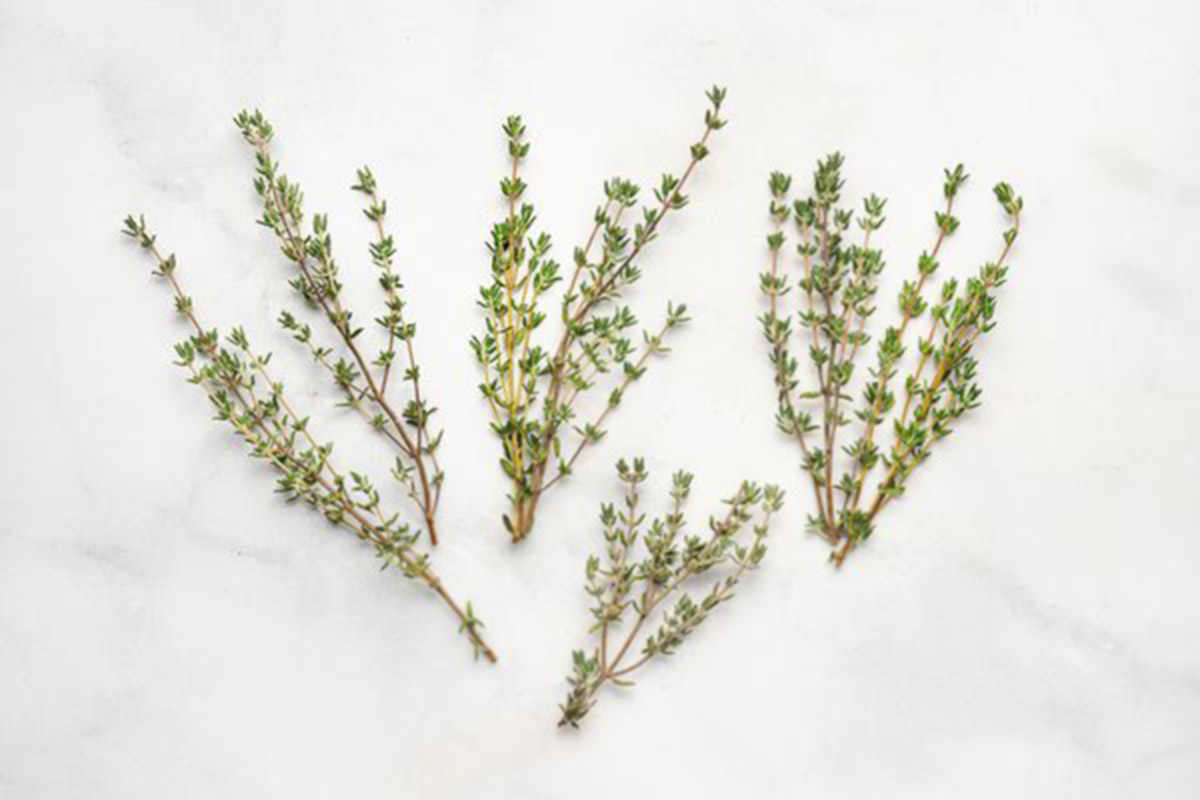

0 thoughts on “How To Use Thyme For Mucus”